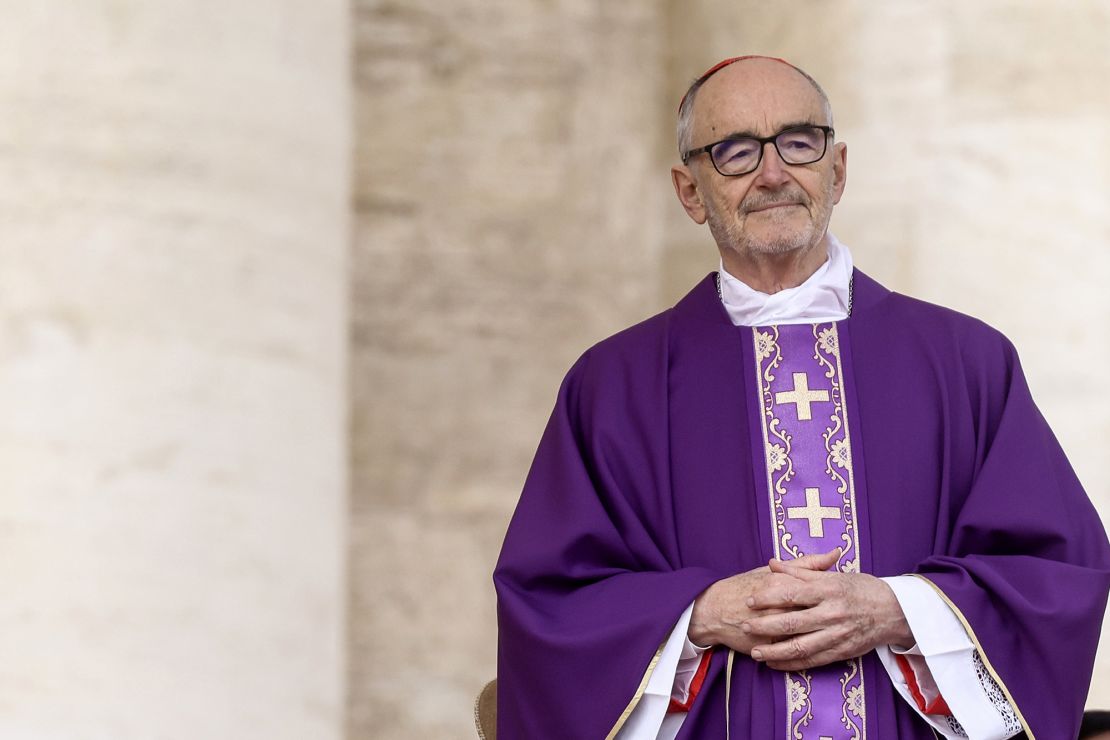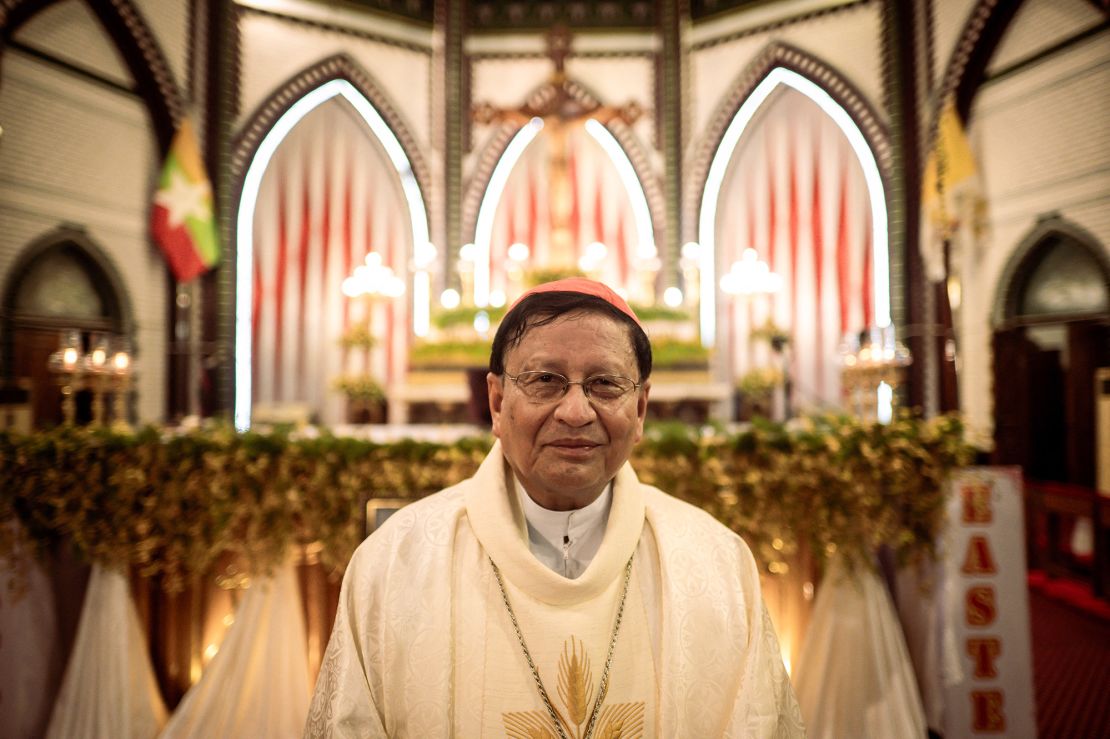Rome
CNN
—
The pontificate of Pope Francis profoundly shook up the Catholic Church.
His restless 12-year-papacy, with its focus on a “poor church for the poor,” called on Catholicism to leave its comfort zone and pitch its tent among the poorest communities. Francis opened discussions on topics that were once viewed off limits, such as the role of women. He welcomed LGBTQ Catholics as “children of God” and opened the door for remarried divorcees to receive communion. He also generated attention with his strong critiques of economic injustice and calls to protect the environment.
Throughout his papacy, however, Francis faced fierce resistance from small, but noisy, conservative Catholic groups and a certain amount of indifference and silent resistance from bishops in the hierarchy.
Now, as 133 voting members of the College of Cardinals prepare for the conclave, the closed-doors process to elect Francis’ successor, they face a weighty choice: Build on the late pope’s reforms and vision, or slow things down and embark on a course correction.
CNN spoke to multiple cardinals and other church sources for this article. While some cardinals would prefer a safer option who focuses on unity, one who worked closely with Francis said such a choice would be the “kiss of death” for the church.
Those who will process into the Sistine Chapel on Wednesday to begin the process to elect a new pope could not have failed to notice the outpouring of affection for Francis after he died.
When Cardinal Giovanni Battista Re, the Dean of the College of Cardinals, talked warmly about Francis’ vision for the church as he delivered the homily at Francis’ funeral, the crowd gathered in St. Peter’s Square repeatedly applauded. And in East Timor, which Francis visited in 2024, around 300,000 people attended a Mass for the late pope on the same day as the funeral. All of this has led one retired cardinal to urge his confrères to take note.

“The people of God have already voted at the funerals and called for continuity with Francis,” Cardinal Walter Kasper, 92, a theological adviser to the late pope, told La Repubblica, an Italian daily newspaper.
In other words – read the room.
Francis’ supporters say that only a pope willing to continue what the late pontiff started will do so. But the politics of a papal election process are subtle. Anyone overtly campaigning to be pope immediately disqualifies themselves and the cardinals must vote according to what they discern to be the will of God. Still, that doesn’t mean simply sitting in their rooms and praying for divine inspiration on how to vote.
Each morning during the pre-conclave period the cardinals meet in the Paul VI synod hall for “general congregations.” Then, in the evenings, they often continue the discussions over a plate of pasta and a glass of wine, with several seen eating in trattorias in the Borgo Pio, a village-like quarter near the Vatican.
A fault line is already emerging. Some cardinals want the next pope to follow firmly in Francis’ footsteps and focus on the “diversity” of the universal church, whose axis has shifted away from Europe and the West. Others are calling on the next pope to emphasize “unity” – code for a more predictable, steady-as-she-goes approach.
Austen Ivereigh, a papal biographer and Catholic commentator, puts the two positions this way.
“The first (diversity) sees Francis as the first pope of a new era in the Church, showing us how to evangelize today, and how to hold together our differences in a fruitful way,” he explained.
“The second (unity) sees the Francis era as a disruption, an interruption, that now needs to be reined back by a return to a greater uniformity.”
Those pushing the “unity” line include some of the most vociferous critics of the late pope, such as Cardinal Gerhard Müller, the Vatican’s former doctrine chief who Francis replaced in 2017. Characterizing the last pontificate as a divisive authoritarian, he recently told the New York Times: “All dictators are dividing.”
Most cardinals will not share Müller’s characterization, and cardinals have repeatedly expressed appreciation for Francis’ concern for those at the margins and his ability to connect with people.
But a number of them are rallying around the “unity” slogan and have plenty of criticisms of the last papacy, including his decision to embark on a major, multi-year reform process – the synod – that has opened questions about women’s leadership and how power is exercised in the church.
Some also didn’t like Francis’ full-throated critiques of priests who like to wear elaborate vestments or his offering of blessings to same-sex couples, which has been rejected by some bishops in Africa. The feeling among the “unity” group, which has the support of some retired cardinals, is that the next pope needs less of the disruptive style of Francis.

“His (the pope’s) first duty is to preserve and deepen the unity of the church,” Cardinal Vincent Nichols, Archbishop of Westminster, in London, told CNN. Nichols praised Francis’ pastoral gestures, although added: “There probably is a balancing up to do, but that is not primarily to do with arguments or teaching or doctrine.”
The leading “unity” candidate, it would appear, is Cardinal Pietro Parolin, the Holy See Secretary of State. He would not represent an obvious break with Francis, but his style would be very different. Parolin is a mild-mannered, thoughtful Italian prelate who oversees the Vatican’s diplomacy, which has included a provisional agreement with China over the appointment of bishops.
But Parolin’s sceptics point to his lack of experience working at the church’s grassroots and his flat delivery of a homily at a Mass for around 200,000 young people in St Peter’s Square, the day after Francis’ funeral. As he read from his notes, the cardinal seemed unable to engage the congregation, in stark contrast to Francis, who frequently spoke off-the-cuff and would often engage in a back and forth with young people.
Parolin has support among the large network of Holy See diplomats, of which he is a member. CNN’s Vatican analyst Elisabetta Pique, who is also a correspondent for La Nacion in Argentina, says that retired Italian cardinal and former diplomat, Beniamino Stella, 83, is considered a strong supporter of Parolin. He is reported to have “stunned” cardinals on April 30 with an attack on the late pope’s moves to give lay people governance roles in the church, saying Francis was wrong to separate ordination as a priest or bishop from the power of church governance. (Francis had appointed the first women to lead Vatican offices and sought to open more lay leadership roles.) Stella’s attack was surprising because he had been a trusted collaborator of Francis.
Others see the unity argument as superficially attractive but having the wrong focus. One of those is Cardinal Michael Czerny, who worked closely with Pope Francis, and has led the Vatican office for human development. He said that unity – while essential – cannot be a program or a policy.
“The terrible danger is, if you make this your obsession, and if you try to promote unity as your primary objective, you end up with uniformity,” he said. “And this is exactly what we don’t need. We spent decades now trying to learn to get beyond uniformity to a true catholicity, a true pluralism.”
Czerny added: “It’s interesting the words (unity and uniformity) are so close, but the difference is huge. I think one is the kiss of death, and the other is life and abundant life.”

Will of the people
Each night during the nine official days of mourning that follow the death of a pope, a cardinal presides at a Mass and has an opportunity to reflect on Francis’ pontificate. It’s harder for cardinals to be openly critical of the late pontiff while others among them are asking in these Masses how the cardinals can build on what Francis started.
“I think of the multiple reform processes of Church life initiated by Pope Francis, which extend beyond religious affiliations,” Cardinal Baldassare Reina, the vicar of Rome, said in a homily this week.
“People recognized him as a universal pastor. These people carry concern in their hearts, and I seem to discern in them a question: What will become of the processes that have begun?”
That need to continue the reforms begun by Francis could favor a candidate such as Cardinal Mario Grech, who leads the synod office, and which has showcased the diversity of the church. The reform-minded German cardinal Reinhard Marx has been among those arguing for a pope who continues in the line of Francis, as has Cardinal Jean-Claude Hollerich of Luxembourg, who played a leading role in the synod.
A “diversity” candidate could come from Asia or be closely connected to the church’s frontline missions. In this vein, there is some talk of Cardinal Luis Antonio Tagle of the Philippines, but he is not the only possibility.
Outcome hard to predict
The group of cardinals choosing Francis’ successor is a diverse body drawn from virtually every corner of the globe; during his pontificate Francis dramatically re-shaped the body of cardinals, making appointments to countries that had never had a cardinal before.
But it means that many of them don’t know each other well, and during the discussions in the Paul VI synod hall, the cardinals have been wearing name badges. The intense media interest also seems to have startled cardinals unused to being swarmed by groups of reporters and cameras when they enter or leave the Vatican.
It is much harder to predict how such a diverse body is going to vote. However, it seems the cardinals from the “peripheries,” who represent the shift in the Catholic Church’s axis away from Europe, largely share the late pontiff’s vision and are primarily focused on how the next pope responds to the crises facing the globe.

Charles Bo, the first cardinal from Myanmar, who was appointed by Francis in 2015 and wants to see continuity with Francis’ reforms, told CNN in an email the next pope must “pursue peace without pause” and be a voice of moral authority which “calls humanity back from the edge of destruction.”
“Religions must unite in a common cause to save humanity,” he said. “The world urgently needs a new breath of hope – a synodal journey that chooses life over death, hope over despair. The next pope must be that breath!”
The cardinals entering the Sistine Chapel next week for conclave are not just casting their vote for a new pope, but making a critical decision that will impact the church for years to come.





